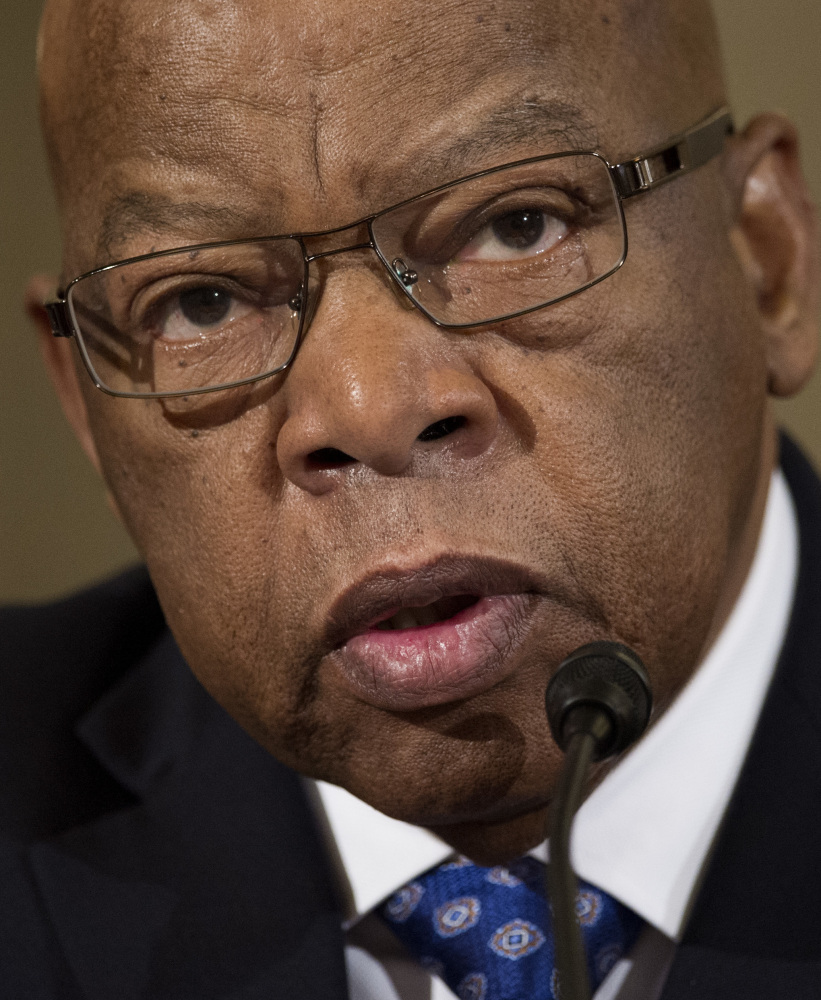The eruption of hostilities between President-elect Donald Trump and civil rights icon Rep. John Lewis, D-Ga., may be recorded as just one more example of what has become standard Twitter retaliation for Trump.
But coming on the Martin Luther King Jr. Day holiday weekend, it also reignited the passions around Trump’s difficult history with African-Americans, the group of voters from whom he might be most alienated as he prepares to move into the White House this week.
In an interview with NBC’s “Meet the Press” on Friday, Lewis said he did not regard Trump to be “a legitimate president” because of allegations that high-level Russian operatives interfered in the election on Trump’s behalf.
Trump lobbed back with a tweet early Saturday that disparaged both the congressman and his district, which includes some of Atlanta’s most affluent neighborhoods.
“Congressman John Lewis should spend more time on fixing and helping his district, which is in horrible shape and falling apart,” Trump wrote.
“(Not to …” – he needed two tweets to finish the thought – “mention crime infested) rather than falsely complaining about the election results. All talk, talk, talk – no action or results. Sad!”
Trump continued his taunts in a separate tweet Saturday evening, saying Lewis should “finally focus on the burning and crime infested inner-cities of the U.S. I can use all the help I can get!”
Trump’s attack on Lewis drew widespread condemnation across party lines, particularly given Lewis’ role in the fight for black voting rights.
“John Lewis is beyond a doubt the conscience of the country and that’s why his people (constituents) send him to Congress,” said Kwame Lillard, an activist who helped to organize the civil rights-era Freedom Rides and has known Lewis for more than 60 years.
Lewis was one of the leaders of the legendary Selma to Montgomery voting rights march in 1965, in which Alabama state troopers clashed with marchers, leaving many of them, including Lewis, badly injured.
The march entered the American lexicon as “Bloody Sunday” and the stark images of the police beatings helped build support for the civil right movement.
Trump’s harsh rhetoric about Hispanics, Muslims and women was one of the hallmarks of his campaign, and while he emerged from the election with a solid majority of Electoral College votes, he trailed Democrat Hillary Clinton by nearly 3 million popular votes.
In the national exit poll, 91 percent of black voters had an unfavorable view of Trump, while 83 percent had a favorable view of Clinton.
In their vote preference, the exit poll found black voters favored Clinton 89 to 8 percent over Trump.
Since Election Day, Trump has said he would reach out to voters who did not support him in an effort to bring the country together.
Send questions/comments to the editors.



Success. Please wait for the page to reload. If the page does not reload within 5 seconds, please refresh the page.
Enter your email and password to access comments.
Hi, to comment on stories you must . This profile is in addition to your subscription and website login.
Already have a commenting profile? .
Invalid username/password.
Please check your email to confirm and complete your registration.
Only subscribers are eligible to post comments. Please subscribe or login first for digital access. Here’s why.
Use the form below to reset your password. When you've submitted your account email, we will send an email with a reset code.